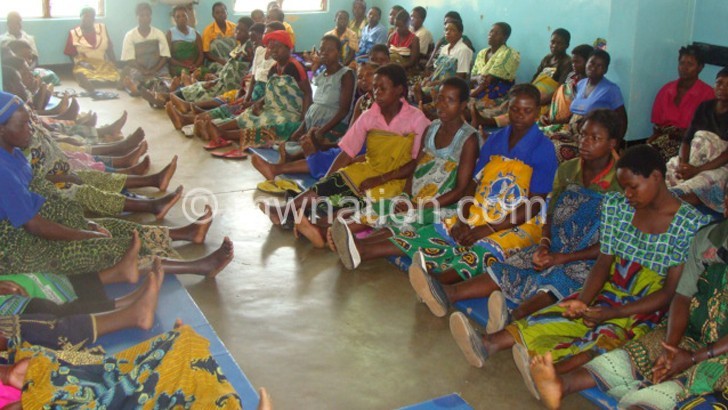Expert warns on high fertility rate
A social statistics and demographics expert has warned that high fertility has the potential to derail the current and future progress in the socio-economic development of a country.
University of Malawi’s Chancellor College (Chanco) lecturer in population and demographic studies Dr. Jesman Chitsanya said the age structure in Malawi is characteristically youthful, consisting of higher proportions of youths relative to smaller percentages of the population in working force and this would bring stress to government’s resources.
“As they are not working, this would bring more stress to government’s resources, making it more difficult to invest in the physical and human capital needed for expanding the economy,” he said in an e-mailed response to a questionnaire.
Chitsanya’s sentiments follow preliminary results of the fifth Malawi Demographic and Health Survey (2015-16 MDHS) which indicate fertility in Malawi has declined since 2010 while use of family planning has increased and women in Malawi are currently having an average of 4.4 children compared with 5.7 children in 2010.
He said the decline by 1.3 children within five years is unprecedented in the history of the fertility transition in Malawi which has always remained high – above six children – for a long time.
Observed Chitsanya: “The decline reflects the notable improvement in use of modern contraception among currently married women, which has increased six-fold from 7.4 percent [1992] to 42.2 percent [2010], and according to the 2015/16 Malawi Demographic and Health Survey’s preliminary results, currently it is 58 percent.
“A strong family planning programme, which saw the Ministry of Health [MoH] spearheading a collective effort among its development partners, and other non-governmental organisations leading among them, Banja la Mtsogolo, has been successful in bringing family planning services to rural areas.”
Commenting on the result that child mortality has declined by almost 50 percent since 2010 as currently there are 64 under-five deaths for every 1 000 births in Malawi compared with 112 deaths per 1000 births in 2010, Chitsanya said perhaps the country’s most powerful weapon is the use of high-school educated village health workers, who after receiving a minimum of 10 weeks training, assist in diagnosing childhood killers by going round in villages using bicycles.
During this year’s World Population Day commemorations on Friday at Mankhamba Primary School in Senior Chief Kachindamoto’s area in Dedza District, Minister of Gender, Children, Disability and Social Welfare Jean Kalilani said rapid population growth is a threat to the country’s development.
“Rapid population growth poses various socio-economic challenges such as land degradation, food insecurity, landlessness, disease and poverty amongst others,” said Kalilani.
The day was commemorated under the theme Investing in Teenage Girls.
The minister said girls face serious challenges in their day to day lives, including forced early marriages, sexual violence, and harmful cultural practices.
“Fifty-two out of 100 girls below 18 years in Malawi are forced into early marriages, 50 out of 100 girls get pregnant before maturity, 82 out of 100 girls drop out of school, 44 out of 100 girls get forced into sex and three out of 100 get infected with the HIV virus that causes Aids,” said Kalilani.






Really encouraging trend in the fertility decline. Needs to be speeded up though. And where are the stats for boys? Difficult to understand the girl’s education stats without comparing with those for boys. My village is full of school dropouts, both girls and boys. And they appear busy making babies – so contraception efforts should be given to this group as well. Zikomo.